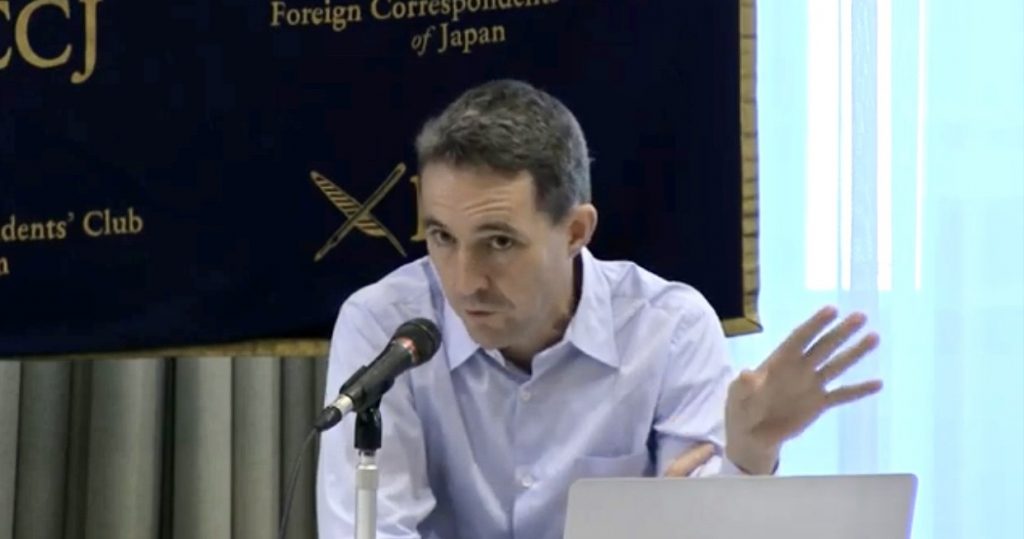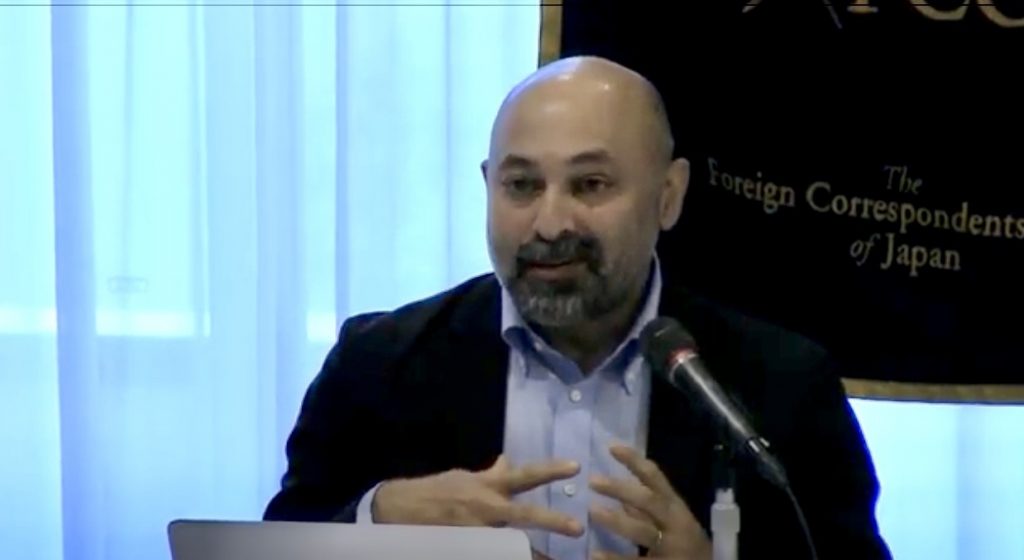



Anthony Rowley
TOKYO: In what one leading physician describes as an “astounding” development, the number of new COVID-19 infections in Japan plunged from a crisis-level of around 24,000 a day in September to a relatively stable rate of around 200 a day toward the end of November.
The situation in Japan contrasts dramatically with that in Europe – particularly Central Europe, Germany and Austria – where COVID infections have surged back to a point where controversial lockdowns on people are planned or being implemented.
“Why did Japan’s fifth and biggest wave of the pandemic, driven by the super-contagious delta variant, suddenly come to an abrupt end following a seemingly relentless rise in new infections?” asked the English language Japan Times recently.
“According to one group of researchers, the answer may be that the delta variant took care of itself in an act of self-extinction, the paper said, citing medical sources who believe the chief reason for the plunge “may be related to genetic changes the coronavirus undergoes during reproduction.”
But other experts, including Dr. Gautam Deshpande, an internist at St. Luke’s International Hospital in Tokyo and a Medical Advisor for the US Embassy, believe less revolutionary factors like Japan’s high vaccination rate and a dedication to mask wearing and social distancing are the answer.
“Nothing is stronger than the power of vaccines,” Deshpande who has worked in Japan for 12 years, declared during a panel discussion at the Foreign Correspondents Club of Japan in Tokyo, noting that mRNA vaccines supplied dominantly by Pfizer but also by Moderna in Japan are behind the miracle.
The delta variant spurred record daily case loads of nearly 26,000 in Japan last year, imposing a strain on hospitals and the health system generally in Japan. Many people who could not be hospitalized for lack of beds suffered or died at home.
This situation was made worse at first by a relatively slow roll-out of vaccines, but once the roll-out progressed the situation changed dramatically to the point where Japan has now passed the “herd immunity threshold,” according to Deshpande.
In the case of measles, for example, the vaccination rate needs to be as high as 90 percent to achieve herd immunity and somewhat less for diseases like polio. For the Corona viruses it needs to be around 60 percent and Japan has now achieved 63 percent, the highest rate among OECD countries.
The incidence of new COVID infections in Japan has plunged to just two per 100,000 people compared to the “danger” level of 50 per 100,000 which countries such as Austria are currently suffering. This is due partly to a high vaccination rate but also to almost universal use of masks in Japan.
Deshpande noted that Japan’s compliance with precautions and restrictions contrasts very sharply with that in many European cities where protests against lockdowns and other restrictions have resulted in some violent demonstrations.
Neither Depshpande nor Dr. Thomas Lomax, who provides a subscription medical support service for International Schools,embassies and foreign companies in Japan, believe that the virus has been defeated in Japan and both expect some resurgence in coming weeks
“No single innovation can end the pandemic [but] it’s reasonable to hope that during 2022, the combined effect [of vaccinations, masking and social distancing] will allow the resumption of normal economic activity and eventually frictionless international travel,” they said in a joint comment. “The end point will be a steady state situation. SARS-CoV2 will then have become the newest addition to many endemic background respiratory viruses with which humans have coexisted throughout history.”
The two experts expect a modest rise in new infections in coming weeks, among elderly people who have not yet received booster shots against “breakthrough” infections following their first two shots, and among those school children and young people who are yet to be immunized.
Another factor which has contributed to Japan’s recent success in grappling with the COVID-19 pandemic, say Deshpande and Lomax, is its cautious attitude toward lifting restrictions on inbound foreign travelers.